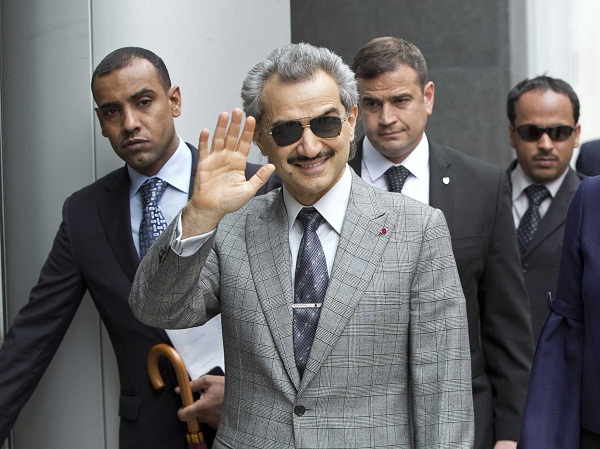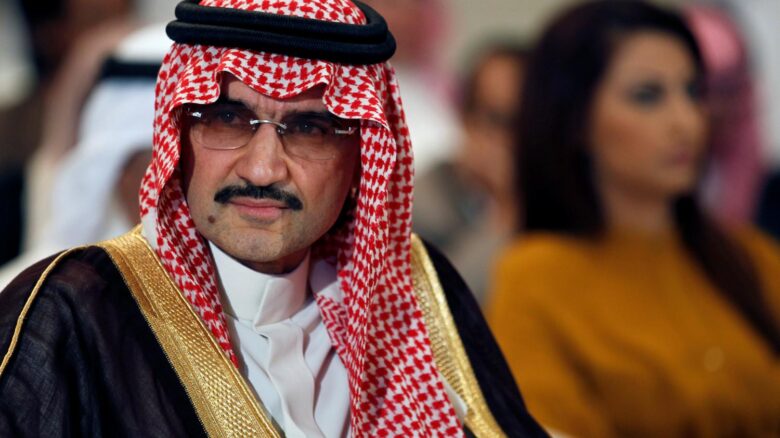When Elon Musk bought Twitter for $44 billion on October 27, some big questions remained. The biggest question was whether the group of 19 investors would follow through on the $7.1 billion investment they had pledged in May before the tech stock market crash.
Prince Al Waleed became Twitter’s second largest shareholder after Musk.

Saudi Prince Al Waleed bin Talal, one of a group of 19 investors, filed papers with the Securities and Exchange Commission (SEC) on October 31, revealing that he had executed a $1.9 billion investment. This makes Prince Al Waleed the second largest shareholder of Twitter after Musk.
On October 30, Prince Al Waleed tweeted, “My dear friend “Chief Twit” (the title of Musk’s Twitter account), I am with you always,” and attached an image of a statement by his investment company, Kingdom Holding, a publicly traded company, and the prince’s personal office. He attached an image of a statement by his firm and Kingdom Holding, his investment company and publicly traded company, and the Prince’s personal office.
The statement stated that the prince would continue to own 34,948,000 Twitter shares (Musk’s proposed purchase price was $54.20 per share), making him the second-largest shareholder in the company.
Prince Al Waleed and Kingdom Holding together own about 4% of Twitter stock (Prince owns 95% of Kingdom Holding, according to the filing).
Prince Al Waleed became the second investor to follow through on his co-investment promise to Musk. Qatar’s sovereign wealth fund also disclosed in its SEC filing that it had invested the previously agreed upon $375 million.
However, several government officials, including Senator Chris Murphy (D-Connecticut), have expressed national security concerns about Middle Eastern money investing in Twitter. On October 31, Senator Murphy called for a review by the Committee on Foreign Investment in the United States (CFIUS) on Twitter.
Prince Al Waleed, a nephew of the King of Saudi Arabia, is one of the country’s most prominent investors in U.S. stocks: in 1991, he purchased $590 million of preferred shares in Citigroup (then known as Citicorp), which was under pressure from regulators to recapitalize, and by 2007 the value of these shares had risen to over $9.5 billion The value of these shares jumped to more than $9.5 billion by 2007. Prince also made gains from investments in HP, Apple, and Kodak, and climbed to the top of Forbes’ billionaire list.
However, in November 2017, the Saudi government detained about 200 people, including Prince Al Waleed, at the Ritz-Carlton Hotel in Riyadh on suspicion of corruption. Forbes removed the prince from its billionaire list in March 2018, citing a lack of clarity about his holdings, and took similar action against other Saudi billionaires.
Prince Al Waleed and the Qatari fund accounted for 32% of the $7.1 billion total investment by the investor coalition, making the Middle Eastern execution a good sign for Musk The other 17 investors who pledged to invest in May include Oracle’s Larry Ellison and Sequoia Capital and Andreesen Horowitz.
Initially opposed to a Musk takeover
It was uncertain whether Prince Al Waleed would keep his investment promise. This is because the prince was initially a vocal critic of Musk’s acquisition of Twitter, tweeting on April 14, “As the shareholder with the largest and longest term holding of Twitter shares, Kingdom Holding and I reject this takeover offer.
To which Musk replied with the question, “What is Kingdom’s position on free speech in journalism?” The Prince replied to the same thread on May 5, “Great to connect with my new friend, Elon Musk.”
When Musk tweeted on May 13 that he was putting his $44 billion acquisition of Twitter on hold, the company’s stock dropped 9.7%. Prince Al Waleed bought $20 million worth of Twitter stock that day, but sold it the next day for a loss of $1.7 million. At the time, Prince Al Waleed may have been displeased with Musk’s response, but the outcome appears to have been for the better.
Back in April, when Prince Al Waleed was trying to block Musk’s acquisition, he tweeted the following. Given Twitter’s growth potential, the offer by Elon Musk ($54.20 per share) is far short of the company’s intrinsic value.”
Prince has apparently not changed his mind since then, and is likely expecting a large return on his investment in Twitter.


コメント